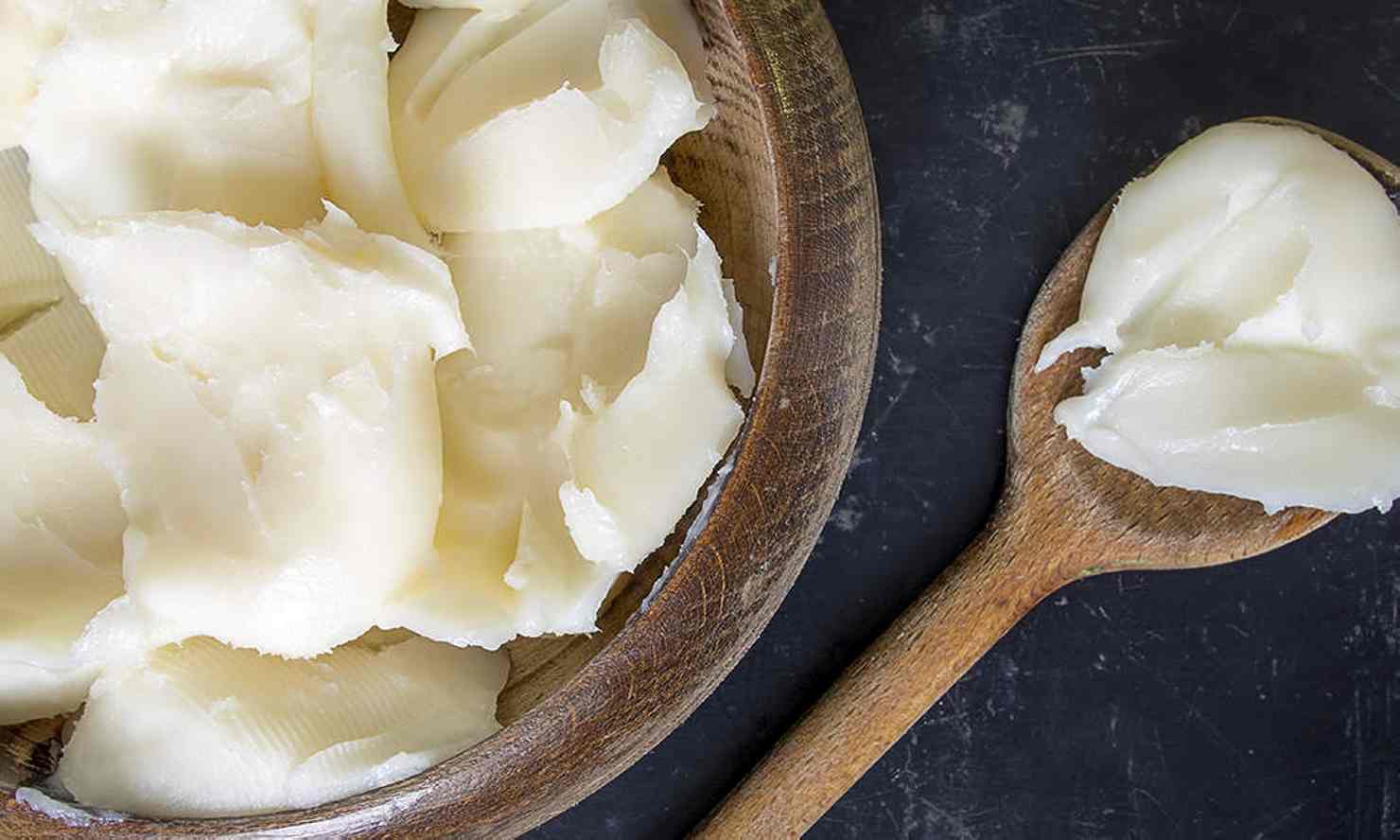
You may come across sunflower oil among the vast display of cooking oils in the grocery store. If you’re wondering whether or not sunflower oil is good for you, you’re not alone.
The oil certainly has its benefits, as it contains linoleic and oleic acids. But like other vegetable oils, it’s high in omega-6 fatty acids, which are consumed in excessive amounts in the Western world.
So is sunflower oil healthy? The short answer is, well, it has some health benefits when consumed in moderation or used on your skin, but there are certainly some drawbacks.
What Is Sunflower Oil?
Sunflower oil comes from the Helianthus annuus, or sunflower plant. Because it contains little saturated fats, it’s known as a healthy cooking oil, but there are a few things you should know about sunflower seed oil.
It contains linoleic acid and oleic acid, two types of fats that are well-researched for their potential health benefits and drawbacks. Sunflower oil may also release potentially harmful toxins when it’s heated above 180 degrees, so it’s certainly not the best cooking oil out there.
Types/Varieties
There are several types of sunflower oil available, each with a different fatty acid composition. Here’s the breakdown:
- High Linoleic: This type has about 70 percent linoleic acid, 20 percent oleic acid and 10 percent saturated fats. It’s rich in omega-6 fatty acids and liquid at room temperature, so it can be used for home cooking.
- Mid-Oleic and High Oleic: These types contain oleic acid and are thought to be healthier options because of their omega-9 fatty acid content. In mid-oleic sunflower oil, the composition is 65 percent oleic acid and 25 percent linoleic acid, with about 10 percent saturated fats. High oleic sunflower oil is made up of about 80 percent oleic acid, 10 percent linoleic acid and 10 percent saturated fats.
- High Stearic/High Oleic: This type of sunflower oil is solid at room temperature (because of the stearic acid), so it’s often used to make ice creams, in packaged foods or in industrial frying. Stearic acid is often used as a stabilizing agent to make cosmetics, cleansers, candles and more.
Linoleic acid is a polyunsaturated, omega-6 fatty acid. This fat is essential for human nutrition and used by the body as a source of energy.
Foods containing linoleic acid account for about 90 percent of dietary omega-6 fats, which are healthy, but only in moderation.
Oleic acid is a monounsaturated omega-9 fatty acid that’s found in vegetable and animal fats. Olive oil is also rich in oleic acid.
Research shows that consuming oleic acid over omega-6 fats can be healthier for your heart and overall health.
Different varieties of sunflower oil react differently to heat. Those containing higher levels of linoleic and oleic acid remain liquid at room temperature, so they can be used for a range of recipes.
Those containing stearic acid, a type of saturated fat, are solid at room temperature, so they are used for different culinary purposes.
Related: Is Corn Oil Healthy? Potential Benefits vs. Risks (Plus Healthy Substitutes)
Sunflower Oil Nutrition Facts
The U.S. Department of Agriculture reports that one tablespoon of sunflower oil contains approximately:
- 120 calories
- 13.6 grams fat
- 5.6 milligrams vitamin E (25 percent DV)
In addition, 86 percent of the fatty acids in sunflower oil are monounsaturated fats, while 10 percent are saturated fats and 4 percent are polyunsaturated fats.
Benefits/Uses
1. Rich in Vitamin E
Isomers of vitamin E have powerful antioxidant abilities, with the power to reduce free radical damage and inflammation. Studies evaluating the effects of vitamin E suggest that consuming antioxidant foods helps naturally slow aging in your cells, improve immunity and reduce the risk of health issues like heart disease.
Because vitamin E foods help reduce oxidative stress within the body, research indicates that they may also improve physical endurance because the nutrient reduces fatigue, promotes blood circulation and improves muscle strength.
2. May Promote Heart Health
Research shows that consuming foods containing linoleic acid may help reduce LDL cholesterol and blood pressure, reducing your overall risk of cardiovascular disease. This is especially true when you replace foods containing higher amounts of saturated fats with the omega-6s found in sunflower oil.
That said, when it comes to heart health, researchers contend that consuming a proper balance of omega-3 and omega-6 fatty acids, with a 1:1 ratio, is critical. Excessive consumption of omega-6s can be problematic.
3. Promotes Healthy Skin
Because sunflower oil contains linoleic acid, oleic acid and vitamin E, it helps improve skin hydration, reduce inflammation, speed up wound healing and improve skin elasticity. It works as an emollient that protects your skin, while keeping it hydrated.
Using sunflower oil for skin can help reduce skin damage because of its protective, antioxidant and anti-inflammatory effects. Studies note that its vitamin E content may also help speed up cell regeneration, which could help improve the look of scars, wrinkles and acne.
4. Nourishes Hair
Sunflower oil for hair helps hydrate, nourish and even thicken your locks. It has antioxidant effects, which work to reduce environmental damage to your hair.
It also promotes circulation to the scalp, adds moisture and gives your hair a healthier, fresher look.
One study found that oils high in linoleic acid may help to thicken hair because the omega-6 fatty acids promote the expression of several factors responsible for hair growth.
5. Fights Infections
Research highlights that both linoleic acid and oleic acid have anti-inflammatory, immune-boosting and infection-fighting benefits.
There’s also evidence that oleic acid has antibacterial properties, so it can be used to improve bacterial skin infections.
Risks and Side Effects
One of the main disadvantages of consuming sunflower oil, and other vegetable oils, is its omega-6 fatty acid content. Although these fats are important for human health, most people consume way too much of them and not nearly enough omega-3 fatty acids.
Excessive consumption of omega-6s can lead to inflammation, weight gain and heart issues.
Do not heat sunflower oil at high temperatures (above 180 degrees Fahrenheit). It is definitely not the best oil for frying foods because it may release potentially toxic compounds (like aldehydes) when cooked at high temperatures, even though it has a higher smoke point.
The best way to use sunflower cooking oil is for recipes that require gentle, low heat, like stir-fries.
Healthy Alternatives
Because sunflower oil is high in linoleic acid (omega-6s) and doesn’t react well to higher temperatures, there are healthier alternatives to consider, including the following:
- Olive oil: When looking at sunflower oil vs. olive oil, they both contain oleic acid, depending on the type you choose. Every type of extra virgin, cold-pressed olive oil contains high amounts of oleic acid, a heart-healthy monounsaturated fatty acid. But olive oil isn’t good for cooking at high temperatures. It’s best when drizzled on salads or dips.
- Avocado oil: Like sunflower seed oil, avocado oil contains oleic and linoleic acids. It’s also rich in vitamin E. Not only is avocado oil deemed one of the healthiest oils on the planet, but it also has a very high smoke point of at least 400 degrees Fahrenheit.
- Coconut oil: Coconut oil is another healthier option for cooking. It’s more stable than sunflower (and olive) oil and works as an antimicrobial, energy-boosting food. It contains medium-chain fatty acids, including caprylic acid, lauric acid and capric acid. It can be used in baked goods, to sauté veggies and meats, and it’s also great for your skin and hair.
Conclusion
- Sunflower seed oil is extracted from the sunflower plant. Because it’s low in saturated fats, it’s often considered a healthy cooling oil, but there are some drawbacks to consider.
- What are the health benefits on sunflower oil? Sunflower oil benefits include its anti-inflammatory, antioxidant, skin-nourishing and heart-healthy effects.
- The oil is rich in linoleic and/or oleic acid, depending on the type you purchase. It’s OK to use this oil in moderation, drizzled on a salad or used in a dip, or to use it on your face and hair. But don’t cook with this oil because it may release potentially toxic compounds.
- Some healthier alternatives include olive oil, avocado oil and coconut oil, which can be used in foods and topically.





